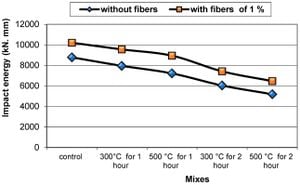Authorities in Japan have made significant strides against drug smuggling, announcing the arrest of Yuuki Tanaka, 45, who allegedly attempted to import cocaine through international mail.
According to reports from Kyodo News, Tanaka, residing in Sumida ward, Tokyo, was accused of attempting to smuggle approximately 0.99 grams of powdered cocaine valued at 25,000 yen (around $230) from Germany on January 22 of last year. The arrest followed investigations by the Yokohama Customs office.
Tanaka is alleged to have cleverly concealed the narcotics within international mail disguised as Christmas cards. Customs officials detected the cocaine using X-ray equipment and confirmed the presence of drugs through the use of narcotics-detecting dogs.
The method employed by the suspect involved placing pieces of paper with patterns identical to those on the Christmas cards directly on top of the bag containing the cocaine. This technique, albeit inventive, was not enough to evade detection.
Following the discovery of the cocaine, Tanaka was arrested on January 28 by officers from the Kanagawa Police's Tsurumi station. He has since been charged with violation of the Narcotics and Psychotropic Control Act, as well as customs law concerning the attempted importation of prohibited goods.
Tanaka’s case sheds light on the continual battle Japanese authorities face against illegal drug trafficking. Japan has strict laws on drug possession and trafficking, and the penalties for violations can be severe. It is not uncommon for authorities to check international mail closely, especially for suspicious packages.
This incident highlights not only the innovative methods used by traffickers, which authorities are continuously adapting to combat, but also the vigilant measures employed by customs officials to stem the tide of drug smuggling. The cooperation between various law enforcement agencies remains pivotal in addressing the growing issue of illegal drug imports.
With Tanaka’s legal proceedings now underway, it raises questions about the methods drug traffickers may resort to as they try to navigate and circumvent Japan’s stringent enforcement measures. Special attention is being drawn to the trafficking methods as they evolve, reflecting the persistent challenge authorities face.
Japan’s historical approach to drug laws has favorably kept the rates of addiction and drug-related offenses comparatively low. Nonetheless, the arrest of individuals like Tanaka reflects the country's continued exposure to drug trafficking attempts, particularly through international postal services.
Authorities are now tasked with ensuring such incidents do not become commonplace, emphasizing the importance of continuous awareness and preventative strategies against drug smuggling. With dedicated vigilance, officials hope to deter potential traffickers from attempting similar schemes.
The arrest serves as a reminder of the persistent threat of illegal drugs and the lengths traffickers will go to bypass law enforcement. It underlines the need for collaborative efforts between custom officials, police, and international law enforcement agencies to combat drug trafficking effectively and safeguard public health.



